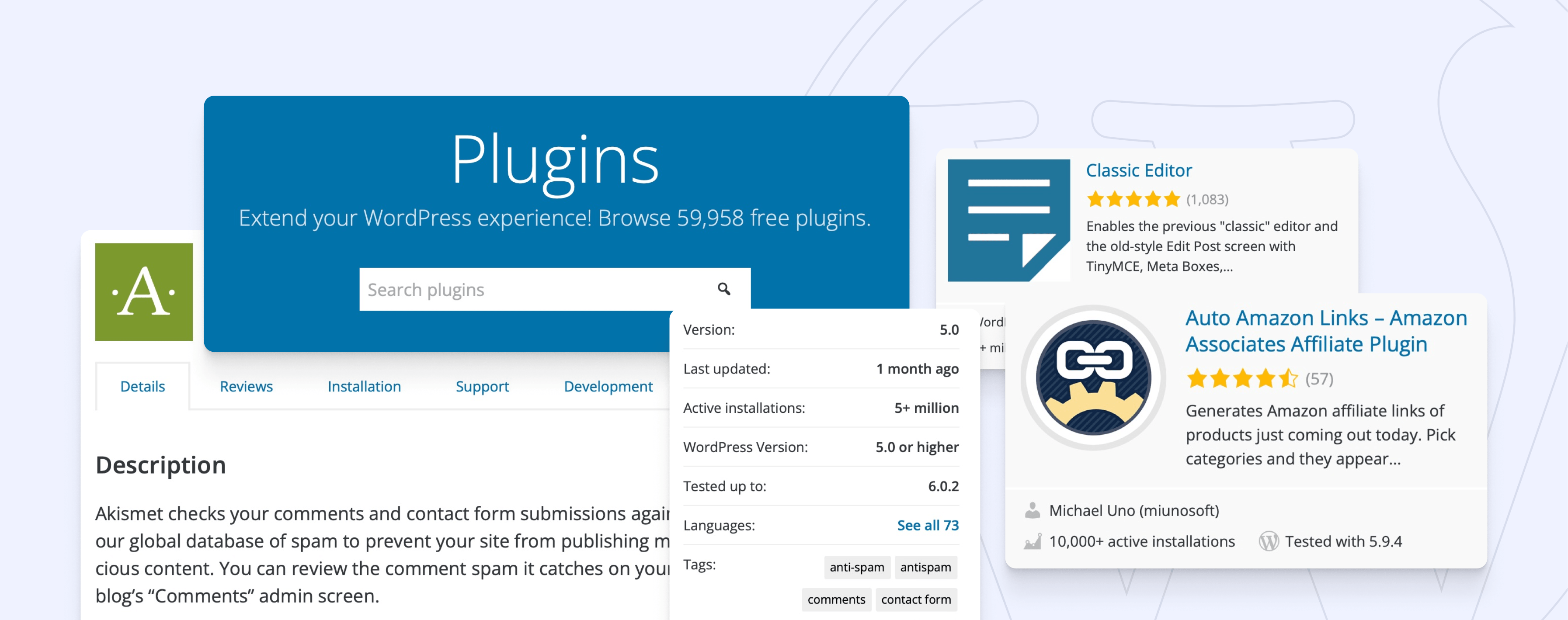It’s no secret that business moves fast, and development must keep pace. From MVPs to continuous improvement, Altis CEO Noel Tock and Director of Product Ryan McCue discuss why WordPress is the ideal tool for enterprise teams.
I’m an enterprise dev team lead and I’m considering options for our organization’s new site – why should I choose WordPress?
Ryan: Firstly, I think it’s important to note that WordPress is the world’s most popular PHP framework, and it’s popular for a reason. WordPress isn’t often discussed in developer-language terms, but fundamentally it is a tool that provides developers with a head start in terms of getting a site up and running. Since a lot of the basics are already in place out of the box, dev teams are able to focus their energies on building features and functionalities that really matter, rather than having to spend time and effort reinventing the wheel.
Noel: It’s the high starting point that really makes the difference for me, too. Enterprise teams have to think in terms of time-to-value; there’s no point spending millions of dollars and taking four months to develop an MVP site, only to have the brief change or discover that it doesn’t deliver the desired outcomes. WordPress allows teams to move fast, which ultimately boils down to cost-effectiveness – how long does it take to make this do what we need it to do?
Ryan: The relentless consumer focus WordPress has also means that it’s extensible by nature – you’re able to focus on whatever the business priority is and build that out, safe in the knowledge that core functionalities are already in place.
OK, imagine that our MVP site is now up and running. What benefits does WordPress offer in terms of phase two development and beyond?
Ryan: The WordPress plugin ecosystem is great; generally speaking, they’ve been designed for users first and foremost, and then have evolved and adapted for the business marketplace. This offers enterprise teams the flexibility of marketers or content creators being able to use them just as effectively as developers, which again reduces time-to-value and means projects can be driven forward without waiting for a developer to become available. I’ve seen other ecosystems where plugins or add-ons are designed for developers, and it takes three months of dev time just to get them integrated and up and running – WordPress is the opposite of that model.

Noel: While it’s true that the plugins are mostly very user-friendly and easy to integrate, there aren’t what you’d call ‘native’ integrations for WordPress that adhere to any rigid integration guideline requirements. This makes it possible to grow a database of vetted integrations that are bidirectional, which ultimately leads us into an integrated MarTech stack that feels more unified and that consumers have confidence in, like Shopify or Segment.com, made possible thanks to WordPress.
Ryan: Today the plugin ecosystem is something akin to the iOS app store, where the openness of the model has resulted in an explosion of innovation – you can find pretty much whatever you need to turn a site into what it needs to be, be it an e-commerce store, a static site generator… the almost endless possibilities it opens up gives enterprise teams the freedom they need to work iteratively and build on each project cycle while still having a robust, well-functioning site.
Noel: I think that’s why a lot of people don’t realize just how prevalent WordPress is amongst enterprise consumers – the sheer customizability of the platform means that they never look like WordPress sites.
Let’s talk security. Is it risky to have such an open ecosystem? What happens if something slips through the net between development cycles?

Ryan: WordPress itself is a very secure project, partially because it’s open source and there are so many eyes looking across it constantly – with WordPress, you’re essentially getting a team behind your team. The view that WordPress isn’t secure is more to do with some of the plugins out there, which can be controlled and reviewed by site owners. The WordPress community has a reputation for being extremely proactive in identifying and fixing any security issues on both existing and upcoming releases, and there’s a strong WordPress security team.
Noel: WordPress lends itself to iterative working because of its openness; a lot is already in place from the get-go as we’ve said, but the “let’s move fast” element means scaling into hardened workflows and deeper security compliance procedures is straightforward. Another benefit is the collaborative nature of WordPress; the ability to see what others are doing, companies volunteering their time, the whole open source project… effectively it allows everyone to level up in tandem, so you’re always getting the latest thinking and best practices.
Want to see what’s possible with WordPress? We’ll show you how Altis takes your CMS to a new level.

